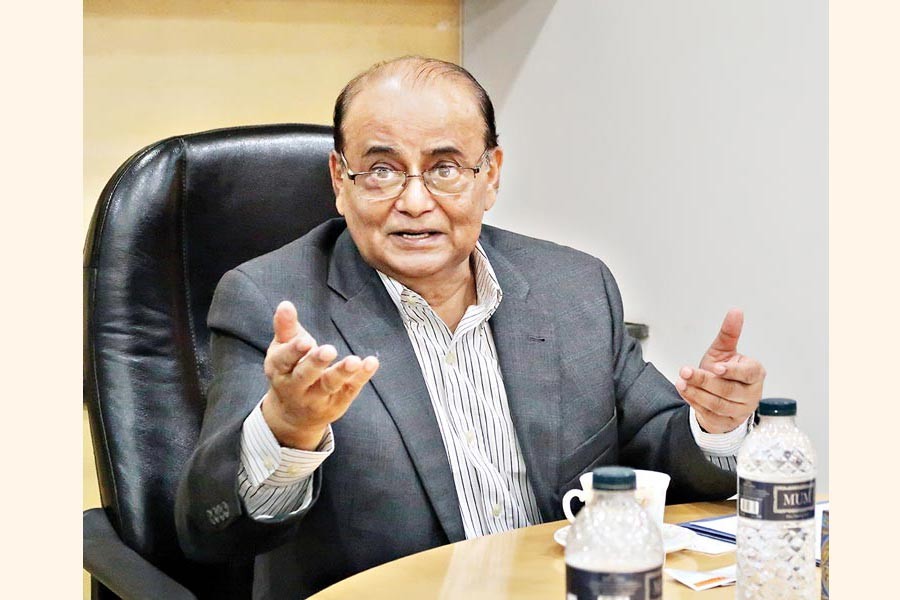Unending domestic industry protection leads to high prices of goods in the local market and consumers are made the victims, a leading economist said on Tuesday.
“A time-bound tariff protection can be offered to help the local industry grow. If any industry fails to thrive within the period, that can be abandoned,” said Policy Research Institute of Bangladesh (PRI) Chairman Dr Zaidi Sattar.
Dr Sattar was speaking on the country’s trade policy regime at an in-house discussion at the office of The Financial Express (FE) in the capital.
“The high prices of consumer goods in the domestic market are because of the high import tariff in Bangladesh. An artificial scope has been created to this end in the name of protectionism of the local industry,” he said.
“We kept gun on consumers’ shoulder to protect the local industry. So, local consumers are affected highly,” the PRI chairman said.
Dr Sattar suggested that an uniform import tariff be introduced to make the protection rational for all manufacturing sectors.
“The government needs to reform its trade policy first since it affects export, import, domestic market, and consumers’ interest,” he said.
While talking about trade tax, he termed it the ‘most distorted’ taxation system. And that’s why developed countries already shifted to direct tax and reduced the share of trade tax to 3.0 per cent.
In Bangladesh the trade tax’s share is 30 per cent. “We suggest that the National Board of Revenue lower it as much as possible”. “Bangladesh’s duty structure is one of the most complex structures in the world,” he said.
Dr Sattar said Bangladesh’s economy grew on an average by 6.5 per cent during the last ten years.
“We have to be an exporting nation, if we want the economy to grow between 8.0 to 10 per cent during the next 20 years. Because, you can’t expect such growth by depending only on the domestic market,” he said.
To raise the volume of exports Bangladesh needed to increase investments many times, Dr Sattar noted.
He also pointed out that earnings from each of Bangladesh’s 75 per cent non-garment export items were below US$1.0 million (10 lakh).
These sectors could not grow duly in the absence of proper nurturing, he said.
“For other manufacturing sectors the government should pursue a similar policy like that followed in the event of the garment sector to incentivise it,” he added.
Replying to a query, the PRI chairman said businesses strongly opposed whenever the issue of signing any free trade area (FTA) deal came into focus. “The resistance comes because they are used to doing business under protection.”
Bangladesh is the highest tariff nation in the world and the rate still remains similar to the rate of 1960s, he said.
Replying to a query he said Bangladesh would not benefit from signing any FTA deal with countries like Djibouti and Tanzania, rather it should target big economies.
But he said none showed interest in signing an FTA deal with Bangladesh because of the high import tariff.
“We have a tariff regime that is untouchable. Any country before starting FTA talks will ask for reducing the tariff,” Dr Sattar said.






